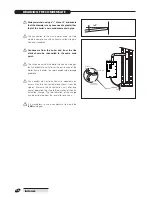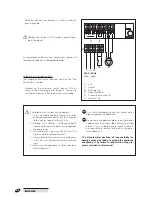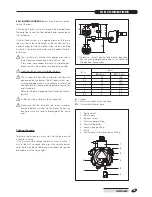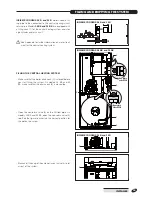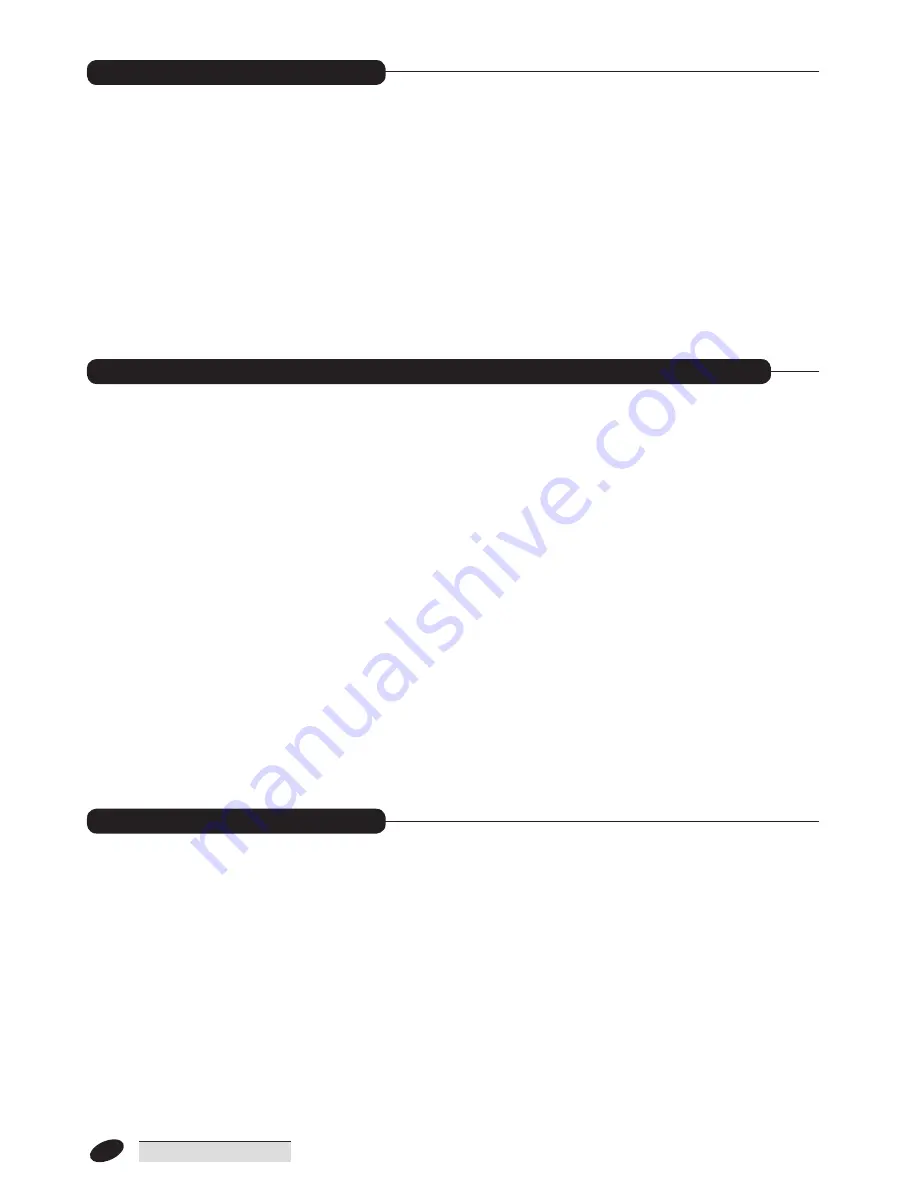
INSTALLER
20
a
These boilers must be installed indoors. They are not
designed for outside use.
b
When installing the boiler, allow sufficient space
around it to access all safety and control devices and
to permit easy maintenance.
b
Make sure that the boiler’s index of electrical protec-
tion is adequate for the characteristics of the room
where it is to be installed.
r
INSIEME CONDENS
boilers must be installed in rooms with suitably dimensioned ventilation grilles in conformity to
applicable technical standards.
PlACE OF INSTAllATION
- Make sure that the flue is able to withstand the tem-
perature of the combustion gases and that it has been
designed and made in compliance with applicable
standards. The flue must also be as straight as pos-
sible, sealed, insulated and not blocked or choked.
- Make sure that the flue is fitted with a condensation
drainage union.
- Make sure that the electrical system has been installed
by a qualified electrician in compliance with applicable
standards.
- Make sure that flow rate, head and direction of flow of
the pumps are suitable and correct.
- Make sure that the fuel feed line and any storage tank
are made and installed in compliance with applicable
standards.
- Make sure that expansion vessels are big enough to
contain the additional volume generated by thermal ex-
pansion.
- Make sure that the central heating circuit has been
flushed out to remove all sludge and lime scale, and
that it has been bled and seal tested.
- Make sure that a suitable water treatment system is in-
stalled. (See the “Water in central heating systems” sec-
tion.) Refer to the
r
catalogue for details of specific
products.
b
The manufacturer declines all responsibility for dam-
age caused by incorrectly constructed flue systems.
b
Flue pipes for condensing boilers must be made
from special materials, different from those used for
standard non-condensing boiler flues.
When installing these boilers in old systems or systems requiring modernisation, always perform the following checks:
INTRODUCTION
Water used in central heating systems MUST be suitably
treated to ensure the correct functioning of those systems
and to guarantee an extended working life for boilers and
all other system components.
This applies not only to existing systems but to newly
installed systems too.
Sludge, limescale and other contaminants in water can
cause irreversible damage to boilers even in relatively
short times, and despite the use of top quality materials
in their manufacture.
Contact RIELLO’s Technical Assistance Service for fur-
ther information on water additives and their use.
b
Always conform to the standards and legislation
applicable in the country of installation.
INSTAllATION IN OlDER SYSTEMS AND SYSTEMS REquIRING MODERNISATION
HEATING CIRCuIT WATER





















